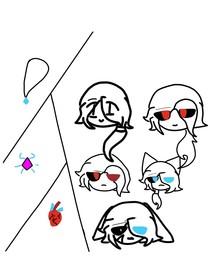逻辑学与科学理论(二) (5-4)
12. Ibid., 211–12. [bk. I., chap. 1, sec. 3, § 10. (Kants Werke, ed. Cassirer, vol. III, 98)—GC/CE.]
13. Kant, ‘The Jäsche Logic’, 589: ‘All cognitions, that is, all representations related with consciousness to an object, are either intuitions or concepts. An intuition is a singular representation (repraesentatio singularis), a concept a universal (repraesentatio per notas communes) or reflected representation (repraesentatio discursiva). Cognition through concepts is called thought (cognitio discursiva).’ [Logik, 399—GC/CE.]
14.I. Kant, ‘What Real Progress Has Metaphysics Made in Germany Since the Time of Leibniz and Wolff?’, tr. G. Hatfield and M. Friedman, in H. Allison and P. Heath (eds.), Theoretical Philosophy After 1871 (Cambridge: Cambridge University Press, 2009), 354. [Kants Werke, ed. Cassirer, vol. VIII, 238—GC/CE.]
15. Kant, ‘The Jäsche Logic’, 628. [Logik, 433—GC/CE.]
16. Ibid., 528–9. [Ibid., 333–4—GC/CE.]
17. Kant, Critique of Pure Reason, 242–3. [Transcendental Analytic, bk. I., chap. 2, sec. 3 (in fine) (1st ed. 1781). (Cassirer, vol. III, 627)–GC/CE.]
18. Ibid, 242. [Ibid.—GC/CE.]
19. [On the same subject, see Cavaillès’s note in Méthode axiomatique et formalisme (Paris: Hermann, 1938), 33—GC/CE.]
20. ‘Mathematics, Science, and Language’ [1929], in P. Mancosu (ed.), From Hilbert to Brouwer. The Debate on the Foundations of Mathematics in the 1920s (Oxford: Oxford University Press, 1998), 45–53. [Monatshefte für Math. u. Physik, vol. 36 (1929), 153–64—GC/CE.]
数学联邦政治世界观提示您:看后求收藏(同人小说网http://tongren.me),接着再看更方便。
相关小说
- 哇伊拉之境
- (佛更)在一座名叫三三市的城市里,有一栋书楼。书楼的楼主每天都在接待一些客人,也有时,楼主会带着他的助手去到三三市的各个地方游玩。一部档案里......
- 14.8万字1年前
- 血澜的经历(我给我OC写的文,好不好看烂不烂别管)
- 0.1万字1年前
- 龙武盛唐:异世遨游
- [无法撼动的决心化作努力前迈,蓝色不甘尘埃]:“我一定会救回我的同伴们,对不起。”:“千日葬龙的孤独,你们懂吗?”[愿星辰锁链能永远共享爱情......
- 8.7万字1年前
- 玫瑰与猫
- ABO文,背景参考《垂耳执事》《人鱼陷落》,双女主文。
- 1.0万字1年前
- 女配也想修仙
- *原创**抄袭必究*顾汐月穿书了,还是个无恶不作的王者型女配,各种挑衅女主,最后被扔进蛇窟里自生自灭了。她微咧嘴角,谁说女配没有资格修仙,她......
- 7.3万字1年前
- 烟雨系列,絮凝的童话世界
- 熊大熊二的西游记之旅,与来自不同的故事人物相认,也算是美事吧
- 2.5万字1年前





